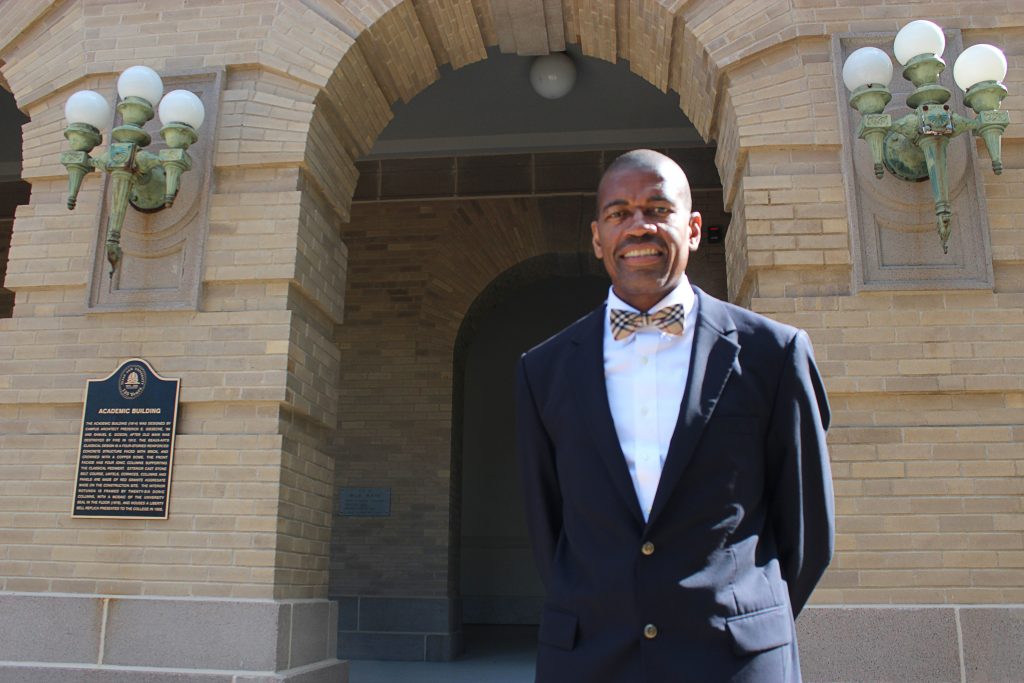National teaching award finalist Reuben May to speak on ‘Exclusionary Practices in Urban Nightlife’
Sociology professor Reuben A. Buford May will present a lecture entitled "‘White Rabbits,’ Dress Codes, Etc.: Exclusionary Practices in Urban Nightlife" as a finalist for the prestigious Robert Foster Cherry Award for Great Teaching on September 26.

Professor in the Department of Sociology Reuben A. Buford May will give a public address as a finalist for the Cherry Award on September 26 entitled “‘White Rabbits,’ Dress Codes, Etc.: Exclusionary Practices in Urban Nightlife.” The lecture will be held on the campus of Texas A&M University at Scoates Hall 208 at 5:15 p.m.
May was selected earlier this year as a finalist for Baylor University’s prestigious Robert Foster Cherry Award for Great Teaching: the only national teaching award – with the single largest monetary reward of $250,000 – presented by a college or university to an individual for exceptional teaching.
May is the author of three books: Urban Nightlife: Entertaining Race, Class, and Culture in Public Space (2014), the award-winning book Living Through the Hoop: High School Basketball, Race, and the American Dream (2008) and Talking at Trena’s: Everyday Conversations at an African American Tavern (2001). In addition to his books and other scholarly publications, May has been featured on radio and television and in print media, in particular for his performance as the #rappingprofessor Reginald S. Stuckey.
May is the winner of numerous University undergraduate teaching awards including the Presidential Professor for Teaching Excellence award (2017), the most prestigious faculty honor bestowed by Texas A&M University, Glasscock Professorship in Undergraduate Teaching Excellence (2015-2018), Texas A&M University,Association of Former Students Distinguished Achievement Award in the area of Teaching (2013), Texas A&M University. He also served on the American Sociological Association, Contributions to Teaching Excellence Selection Committee (2003-2006).
In this address, May will look at how social scientists and legal scholars have paid particular attention to discrimination in housing and employment since the signing of the Civil Rights Act of 1964 outlawing racial discrimination, but have given much less attention to discrimination in public accommodations—e.g., restaurants, hotels, and nightclubs.
May will take us on a journey behind the scenes of “nightlife wonderland”—the estimated $19.9 billion, United States nightclub industry—to reveal the many ways in which nightclub owners covertly and systematically discriminate against particular groups of patrons in violation of federal law. He will suggest strategies for challenging these exclusionary practices.
Be sure to join us at this exciting event.
